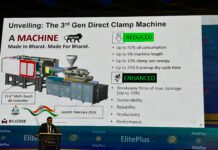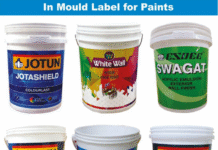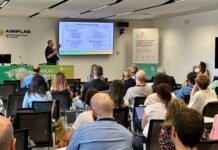I recently met a young man from the plastic industry who talks about the need to add value to everything – products, knowledge, experience and relationships. He is direct, calm and, from what I could make out in my first meeting, articulate and tolerant. He was educated at the University of Massachusetts in Lowell – an institution well known for chemical plastic engineering.
He tells me that the U of Mass Lowell connection to the PlastIndia University coming up in Vapi in Gujarat will mean a huge upgrade for the industry and for the quality of experience of the students. He talks about science and research and development and allowing young engineers just off the campus work on projects that are completely new and that do not have any immediate financial returns. Something that has stayed on my mind, apart from all this, is that he is off on a trip across Nepal on a Triumph motorcycle.
Elite in Mumbai and the ProPak Conference at Greater Noida
I am looking forward to the 7th Elite Speciality Films and Packaging Conference in Mumbai, which starts tomorrow and which is mammoth in its audience and number of presentations. As I wrote last month, it seems that the Indian plastic industry is no longer in denial of all the implications of plastic waste and recycling.
To a large extent this new realism was evident at the Elite Conference on plastic injection and blow molding in July of this year, when several sessions addressed the issues of waste collection from the point of view of individual and industry responsibility apart from that of the brand owners and government. Maharashtra government officials, who were also present, must be given credit for waking up the industry with their bans, however much in need of refinement. This augurs well for the upcoming event on 4 and 5 September 2018 in Mumbai.
The new realism and more sensible talk was evident at the ProPak India 2018 exhibition and conference in Greater Noida. The first exhibition and conference were small (alongside UBM’s larger and well-established Food and Ingredients Show) but interesting. Organized in a short time frame, the conference was aimed at being a knowledge event and this was demonstrated in several sessions. Andrew Manly’s presentation on Active and Intelligent Packaging was outstanding and relevant.
There were a couple of sessions that directly addressed the issues of plastic waste collection and recycling. It was refreshing to hear speakers from very large and leading companies admit (on behalf of the industry) that all the stakeholders collectively missed the bus on the PWM order of 2016, and only woke up this year when it was imminently going to take effect and finally when the shoe dropped with the Maharashtra state ban on plastics.
Useful outcomes of these discussions from my point of view were the more realistic plans for implementation of waste collection and recycling – an actual workflow that is being planned by brand owners and industry was shown. The second useful outcome was that of costs of waste management and how these would be allocated – it was implied that brand owners will absorb these costs, which of course ultimately means the consumer.
The third useful discussion outcome was the suggestion that we need to move from 5 R’s to 7 R’s, with the seventh R being research. The implication is that not all the data being bandied about is perfect and not only industry and waste data but basic materials and recycling technology research are part of the cost of growing up.











